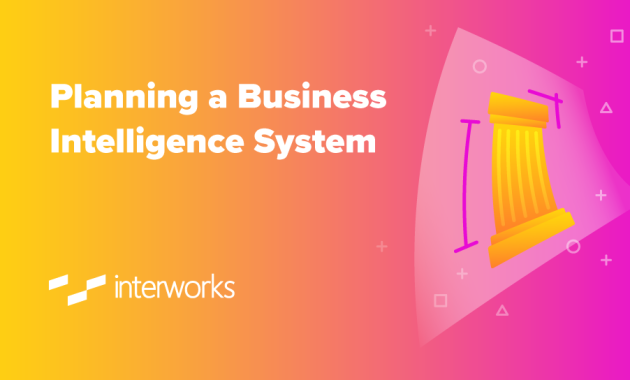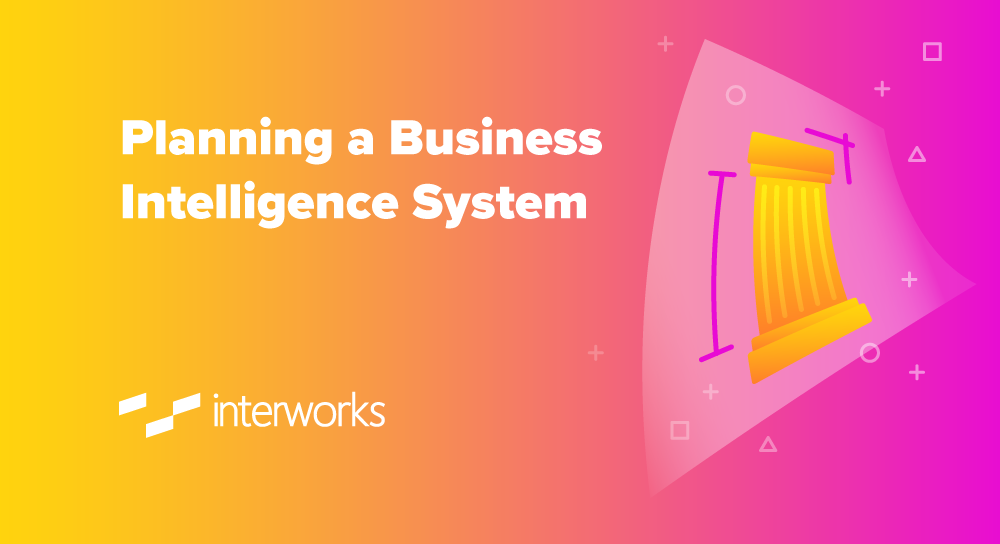
What Makes Great Business Intelligence Software for Smarter Planning: A Deep Dive
In the rapidly evolving landscape of modern business, data is king. But raw data alone is useless. It’s the ability to extract insights, analyze trends, and make informed decisions that truly fuels success. This is where Business Intelligence (BI) software comes into play. However, not all BI software is created equal. Choosing the right platform is crucial for smarter planning and achieving a competitive edge. This article delves into what makes great business intelligence software, exploring the key features and functionalities that empower organizations to make data-driven decisions.
The Core Principles of Effective Business Intelligence
At its heart, business intelligence software is designed to transform raw data into actionable knowledge. This transformation involves several key principles:
- Data Collection and Integration: A robust BI solution must be able to connect to and pull data from various sources. These sources include databases, spreadsheets, CRM systems, and cloud applications. The ability to integrate disparate data sources is fundamental.
- Data Warehousing: A data warehouse acts as a central repository for all the collected data. It’s designed to optimize data storage and retrieval for analytical purposes.
- Data Analysis and Reporting: This is where the magic happens. BI software provides tools for analyzing data, identifying trends, and generating reports. These reports can be customized to meet specific business needs.
- Data Visualization: Presenting data in a clear and understandable format is critical. Effective BI software offers a range of visualization tools, such as charts, graphs, and dashboards. These visualizations make complex data easier to interpret.
- Data-Driven Decision Making: Ultimately, the goal of business intelligence software is to support informed decision-making. By providing insights and actionable intelligence, BI empowers businesses to make better choices.
Key Features to Look for in Great Business Intelligence Software
Selecting the right business intelligence software requires careful consideration of its features. Some features are essential for effective data analysis and smarter planning:
Data Integration Capabilities
The ability to connect to various data sources is a non-negotiable requirement. The software must support a wide range of connectors. These connectors allow for seamless data integration from different platforms. Consider the specific data sources your organization uses. Ensure the software supports those sources. Look for features like automated data extraction and transformation (ETL) processes.
User-Friendly Interface and Data Visualization
A great BI solution should be easy to use. The interface should be intuitive and user-friendly. This allows users of all technical skill levels to access and analyze data. The software should offer a variety of data visualization options. These options include charts, graphs, and interactive dashboards. These visualizations should be customizable to suit your specific needs. Effective data visualization makes complex data easier to understand. [See also: Data Visualization Best Practices]
Advanced Analytics and Reporting
Beyond basic reporting, the software should offer advanced analytical capabilities. These capabilities include statistical analysis, predictive modeling, and data mining. These advanced features provide deeper insights. They also help uncover hidden trends and patterns. The ability to create custom reports is also crucial. These reports should be tailored to your specific business requirements. Look for features like drill-down capabilities and ad-hoc reporting.
Scalability and Performance
As your business grows, so will your data volume. Therefore, the business intelligence software must be scalable to handle increasing data loads. The software should also offer excellent performance. It should provide fast query response times. This ensures that users can access and analyze data quickly. Consider the software’s ability to handle large datasets and complex queries. [See also: Choosing the Right BI Software for Your Growing Business]
Security and Governance
Data security is paramount. The software should offer robust security features. These features protect sensitive data from unauthorized access. Look for features like user authentication, access controls, and data encryption. Data governance is also important. The software should provide tools for managing data quality. It also ensures data consistency across your organization.
Mobile Accessibility
In today’s mobile world, access to data on the go is increasingly important. The software should offer mobile accessibility. This allows users to access dashboards and reports from their smartphones or tablets. Mobile access empowers users to make informed decisions anytime, anywhere. Look for features like responsive design and mobile-optimized dashboards.
Collaboration and Sharing
Effective BI is often a team effort. The software should offer collaboration features. These features allow users to share reports, dashboards, and insights. Collaboration fosters communication and improves decision-making. Look for features like commenting, annotations, and data sharing options.
How Great Business Intelligence Software Supports Smarter Planning
The benefits of business intelligence software extend far beyond basic reporting. It can dramatically improve your planning processes. Here’s how:
Improved Forecasting and Predictive Analytics
By analyzing historical data, business intelligence software can help you predict future trends. This allows for more accurate forecasting. Accurate forecasting is essential for planning and resource allocation. Predictive analytics can also identify potential risks and opportunities. This allows you to proactively adjust your strategies. [See also: Predictive Analytics: A Guide for Beginners]
Enhanced Performance Monitoring
BI software allows you to track key performance indicators (KPIs) in real-time. This real-time data provides a clear picture of your business performance. You can quickly identify areas that need improvement. You can also celebrate successes. This continuous monitoring enables you to make data-driven adjustments. These adjustments ensure you stay on track to achieve your goals.
Data-Driven Decision Making
At its core, business intelligence software empowers data-driven decision-making. By providing insights and actionable intelligence, BI enables you to make informed choices. These choices are based on facts, not gut feelings. This leads to better outcomes. This leads to more efficient resource allocation. This also leads to improved profitability. The more data you can access and analyze, the better your decisions become.
Optimized Resource Allocation
By analyzing data, you can identify where your resources are being used most effectively. You can also identify areas where resources are being wasted. This allows you to optimize your resource allocation. This optimization ensures that your resources are used efficiently. This leads to improved productivity and cost savings. Business intelligence software helps you make informed decisions about investments.
Increased Agility and Adaptability
In today’s dynamic business environment, agility is crucial. Business intelligence software allows you to quickly adapt to changing market conditions. The ability to analyze data in real-time allows you to identify trends. You can quickly adjust your strategies. You can also seize new opportunities. This increased agility gives you a competitive advantage. It ensures that you can respond effectively to unexpected challenges. You can also capitalize on emerging trends.
Choosing the Right Business Intelligence Software for Your Needs
Selecting the right business intelligence software is a strategic decision. There is no one-size-fits-all solution. The best choice depends on your specific business needs. Consider these factors when making your decision:
- Your Business Goals: What are you hoping to achieve with BI? Define your goals. Align your software selection with those goals.
- Your Data Sources: Identify the data sources you need to integrate. Ensure the software supports those sources.
- Your Budget: Determine your budget. Compare the pricing models of different software providers.
- Your Technical Expertise: Assess your team’s technical skills. Choose software that is easy to use. Also, consider the level of support and training offered.
- Scalability: Consider your future growth. Choose software that can scale with your needs.
- Security: Prioritize data security. Choose software with robust security features.
The Future of Business Intelligence
The future of business intelligence software is bright. Emerging technologies are shaping the landscape. These technologies include:
- Artificial Intelligence (AI) and Machine Learning (ML): AI and ML are being integrated into BI platforms. These technologies automate data analysis. They also provide deeper insights.
- Cloud-Based BI: Cloud-based BI solutions are becoming increasingly popular. They offer scalability and flexibility. They also reduce IT infrastructure costs.
- Self-Service BI: Self-service BI empowers business users. They can access and analyze data without relying on IT.
- Data Democratization: The goal is to make data accessible to everyone. This empowers all employees to make data-driven decisions.
These trends will continue to transform the way businesses use data. They will enable smarter planning and better decision-making. The right business intelligence software is crucial. It is an investment in your future success. It can help you stay ahead of the competition. It also drives sustainable growth.
Conclusion: Empowering Smarter Planning with Great Business Intelligence Software
In conclusion, choosing great business intelligence software is a critical investment. It empowers organizations to make smarter planning decisions. It provides valuable insights. It also drives better business outcomes. By focusing on the key features and functionalities discussed in this article, you can select the right BI solution. This will allow you to unlock the full potential of your data. It will also achieve a competitive advantage. Embrace the power of data. Embrace business intelligence software. Plan smarter. Achieve more.

